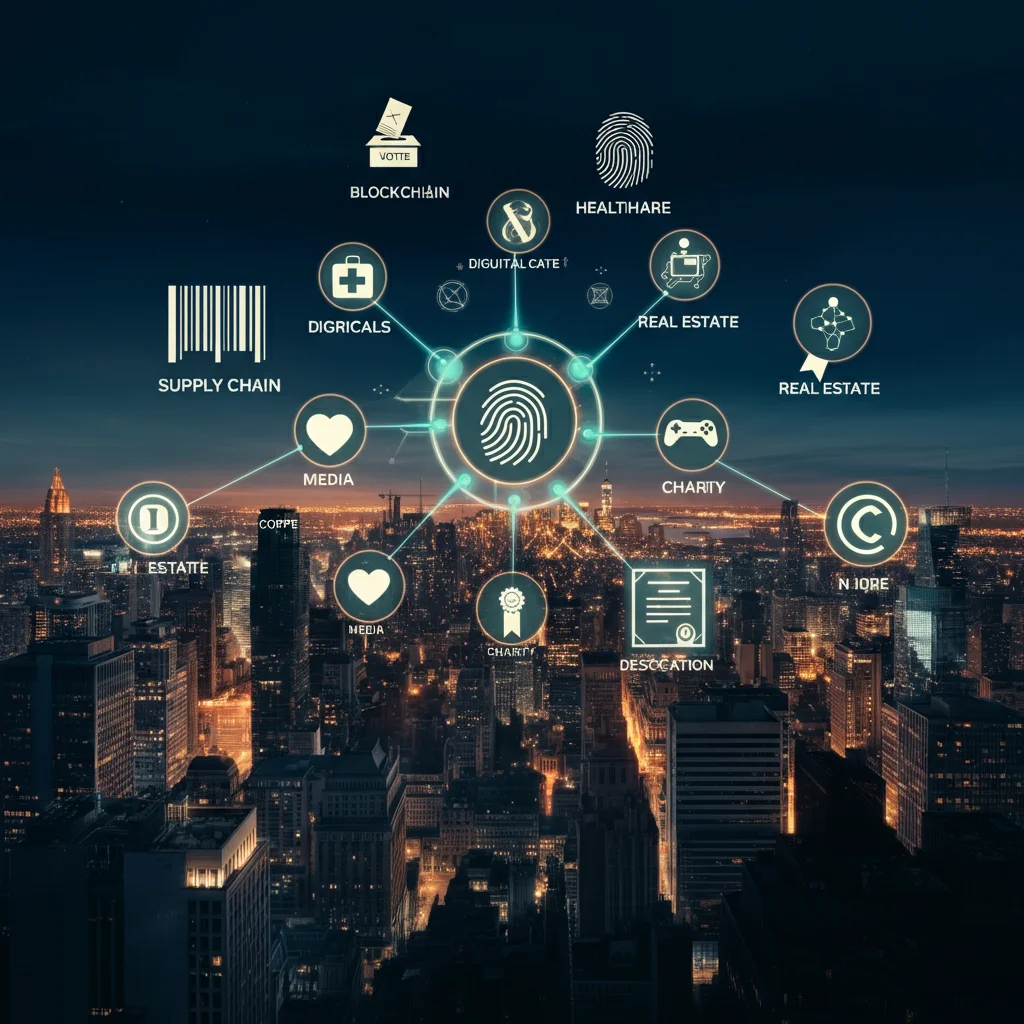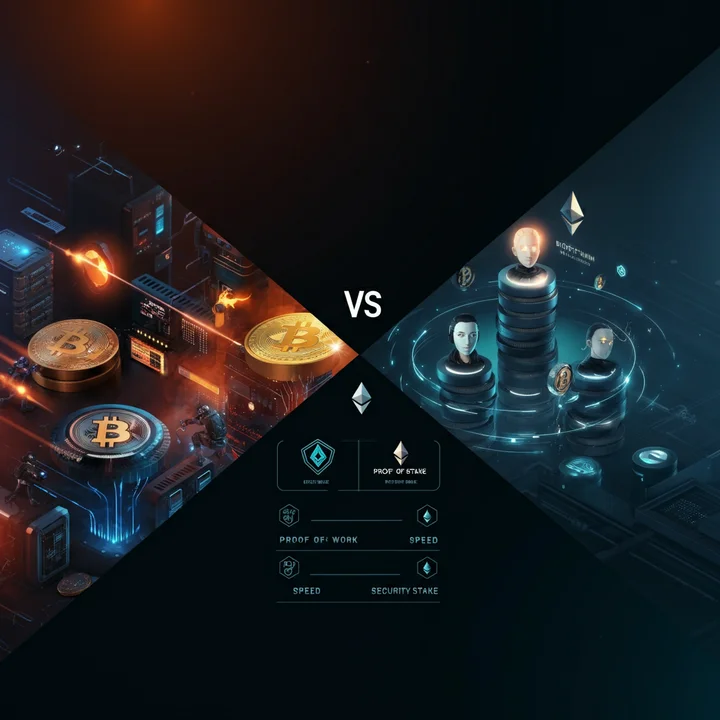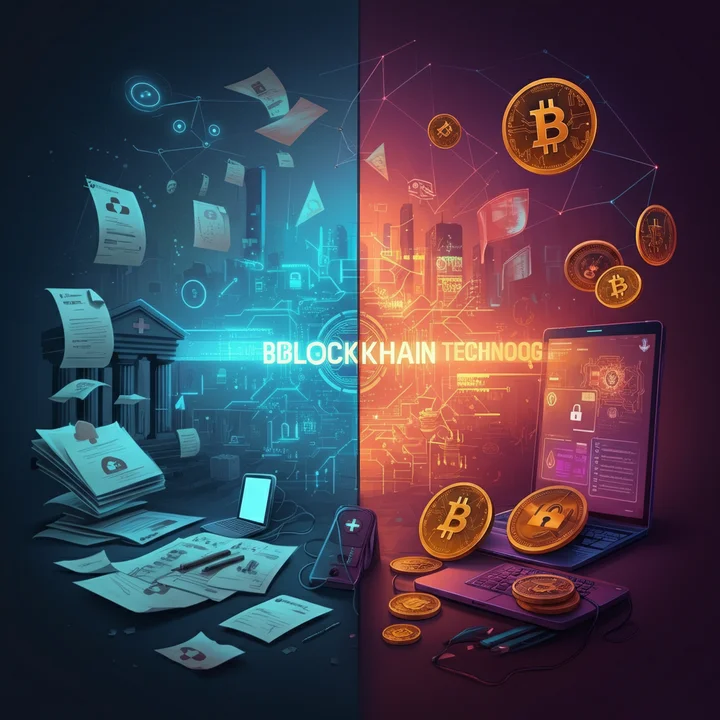Blockchain technology is often synonymous with cryptocurrency, thanks to its role in powering Bitcoin, Ethereum, and other digital currencies. But blockchain’s potential goes far beyond financial transactions. Its decentralized, secure, and transparent ledger system has opened the door to applications across diverse industries, reshaping how we think about trust, efficiency, and innovation.
This blog explores 10 exciting blockchain use cases outside of cryptocurrency. These examples illustrate the technology’s far-reaching capabilities and how it’s transforming industries, one block at a time.
1. Supply Chain Tracking
One of blockchain’s most impactful applications is supply chain management. Many industries struggle with tracking the movement of goods, ensuring authenticity, and maintaining transparency.
With blockchain, companies can trace products from their origin to the consumer. This level of visibility helps fight counterfeiting, ensures ethical sourcing, and reduces inefficiencies.
Example: Walmart leverages blockchain to track food items across its supply chain. Using IBM’s Food Trust blockchain, the company reduced the time it took to trace the source of mangoes from 7 days to just 2.2 seconds.
Benefits:
Greater transparency
Enhanced consumer trust
Faster recall processes for defective or contaminated products
2. Voting and Elections
Ensuring transparency and preventing fraud are critical in the voting process. Blockchain offers a secure, tamper-proof system capable of transforming how elections are conducted.
Blockchain-based voting systems enable voters to confirm their vote was recorded correctly, while maintaining anonymity. This improves trust in the election process by eliminating concerns of vote tampering.
Example: West Virginia tested blockchain-based voting for military personnel stationed abroad in 2018, using a mobile app called Voatz. Results showed promise for larger-scale elections.
Benefits:
Increased voter confidence
Reduced risk of election fraud
Simplified vote auditing
3. Digital Identity
Managing and verifying digital identities is often prone to fraud or misuse. Blockchain offers a decentralized method for securely storing and verifying identity information, giving individuals more control over their personal data.
Example: Microsoft’s Azure-based blockchain project, ION, focuses on self-sovereign identity. It allows users to manage their digital identity without relying on third parties.
Benefits:
Enhanced privacy and security
Reduced identity theft incidents
Simplified online verifications
4. Healthcare Record Keeping
Sharing medical records between institutions is often time-consuming and subject to errors. Blockchain can create interoperable and tamper-proof healthcare records, improving patient care.
With blockchain, patients maintain access and control over their health data and approve its sharing securely when needed.
Example: Medical blockchain companies like MedRec and Patientory use blockchain to store and verify patient data, ensuring it remains secure and up-to-date.
Benefits:
Improved data security and integrity
Streamlined sharing between providers
Greater patient ownership of health records
5. Gaming Assets and Collectibles
Blockchain is revolutionizing the gaming industry by enabling true ownership of in-game assets and collectibles. Traditionally, items purchased in games are bound to the platform, but with blockchain, these assets can exist outside the game as tokens.
Example: Axie Infinity and CryptoKitties are blockchain-based games that allow players to buy, sell, and trade assets like characters and collectibles backed by NFTs (non-fungible tokens).
Benefits:
Players own their assets outside the game
Cross-platform compatibility for items
Monetization opportunities for gamers
6. Real Estate and Land Registries
Blockchain simplifies the complicated process of buying, selling, and managing real estate by digitalizing and automating transactions. It also provides secure records of land ownership, reducing fraud and disputes.
Example: Propy, a blockchain real estate platform, enables seamless international property transactions using blockchain to store verified records.
Benefits:
Faster transactions with fewer intermediaries
Reduced risk of fraud
Transparent ownership records
7. Media and Copyright Protection
The media industry is often plagued by piracy and issues with attribution. Blockchain helps ensure fair compensation for artists and creators by transparently recording ownership and usage rights.
Example: Audius, a decentralized music streaming platform, uses blockchain for royalty distribution. Artists and musicians receive higher payouts directly, bypassing traditional intermediaries.
Benefits:
Clear attribution for creators
Fair royalty distributions
Reduced piracy
8. Charity and Donation Tracking
Concerns about transparency often deter donations to charities. Blockchain can track the flow of funds, ensuring donations are used as intended and building donor trust.
Example: The UN World Food Program’s Building Blocks initiative uses blockchain to distribute cash assistance efficiently in refugee camps, reducing misuse and intermediaries.
Benefits:
Enhanced transparency for donors
Minimized fraud and mismanagement
More efficient allocation of resources
9. Education and Certifications
From fake degrees to unverifiable credentials, education faces its share of challenges. Blockchain ensures secure and tamper-proof academic certificates and training records.
Example: MIT offers blockchain-based digital diplomas, enabling graduates to share verifiable proof of their credentials directly with employers.
Benefits:
Simplified credential verification
Reduced risk of fake certificates
Portability of records for learners
10. Internet of Things (IoT)
IoT devices often lack sufficient security, leaving them vulnerable to breaches. Blockchain enhances IoT security by ensuring secure communication between devices and maintaining a holistic ledger of IoT activity.
Example: IoT companies like IOTA use blockchain-inspired solutions to improve scalability and security in IoT ecosystems.
Benefits:
Improved device security
Centralized management of IoT systems
Enhanced data accuracy and integrity
Why Blockchain’s Use Cases Matter for the Future
Blockchain’s versatility has proven it can impact industries far beyond cryptocurrency. Its ability to provide transparency, security, and efficiency offers solutions to modern challenges across diverse sectors.
Organizations that adopt blockchain stand to gain a competitive edge, whether by instilling greater trust in their customers or improving operational efficiencies. From revolutionizing supply chains to empowering content creators, blockchain is reshaping industries one block at a time.
Want to explore incorporating blockchain into your business strategy? Stay updated with our latest insights for practical steps to get started!



